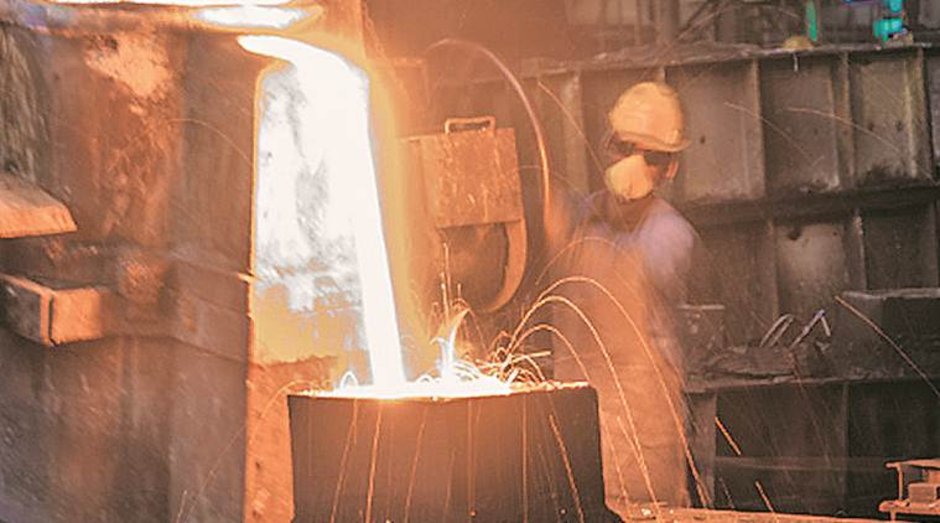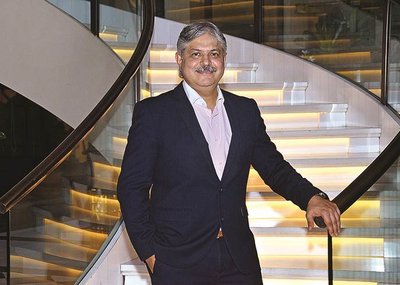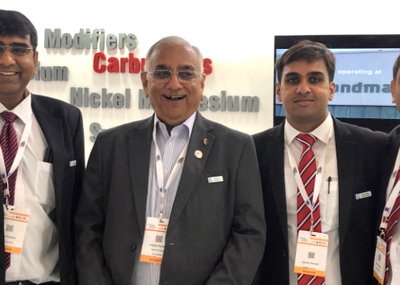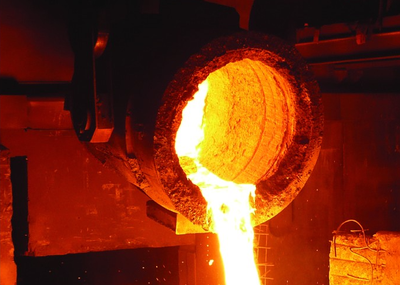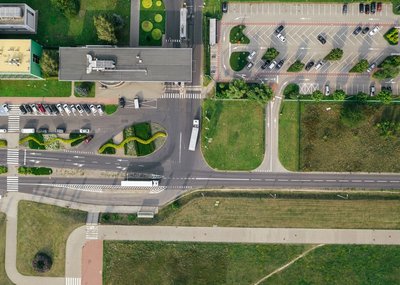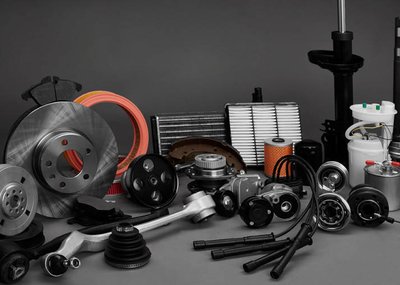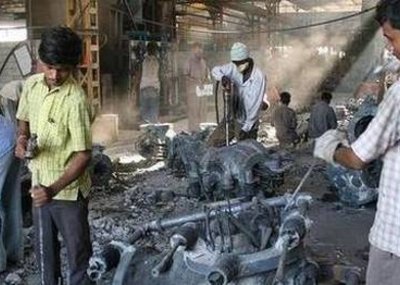India’s manufacturing sector is today crimped by a shortage of both demand and labour, even as governments have lifted most of the post-Covid lockdown restrictions.
Few industries epitomise the crisis better than the foundries of Coimbatore. There are some 600 of them in this light engineering and textile hub of Tamil Nadu. They produce over 100,000 tonnes of castings per month, worth roughly Rs 1,100 crore or Rs 13,000 crore annually.
“The lockdown was from March 22, but we were operating only at 70-75% for at least six months before that. Our capacity utilisation fell to 50% in March and zero in April. Last month, we did 5-10% and it may touch 20-25% in June,” says K. Ilango, managing director of RSM Autokast Ltd, which has three foundries that can produce 2,000 tonnes of castings per month.
Foundry basically melt pig iron, steel scrap or aluminium ingots in an induction furnace and pour the molten metal into moulds containing hollow cavities of the desired shapes. The cooled and solidified castings are, then, removed from the mould.
Coimbatore has 450-odd small foundries that produce up to 400 tonnes per month each, of mainly raw gray and ductile iron castings valued at Rs 60-80/kg. The remaining 150 include both medium (below 1,000 tonnes) and large (1,000 tonnes-plus) foundries, with some making steel, aluminium and other non-ferrous castings that fetch Rs 120-150/kg or more. Some also do further machining of the castings to supply finished components and parts – whether for the auto industry, tractors, pumps & valves, textile machinery, air compressors or lathes.
“Commercial vehicles, passenger cars and textile machinery have been in trouble for almost a year. The lockdown has only worsened it,” points out Ilango, whose company manufactures brake drums for trucks, trailers and buses, while counting Ashok Leyland and Meritor HVS India among its buyers. .
“This crisis is largely about demand. We are seeing it now only in tractors and pumps due to improved soil moisture and bumper crop prospects. Without overall demand picking up, there’s little hope,” notes M. Manickam, chairman of Sakthi Auto Component Ltd, which has Coimbatore’s largest foundry capacity, at 8,000 tonnes of ductile/spheroidal iron castings per month, and supplies steering knuckles, brake drums and discs to the likes of Maruti Suzuki and Hyundai Motor. “We produced 6,000 tonnes in March and zero in April. Last month, we undertook some machining, but no casting. This month, we might reach 800-1,000 tonnes,” he adds.
Lack of orders apart, the exodus of migrant workers is an immediate problem that Coimbatore’s foundries are facing. “An average foundry employs 200-300 people. If you add ancillary industries like machine shops, pattern-making (creating the replica of the object to be cast) and cleaning, the total employment would be 1.75-2 lakh, of which migrant labourers comprise 60%,” reckons C.R. Swaminathan, past president of the Institute of Indian Foundrymen and chief executive of the PSG Institutions at Coimbatore.
Foundries require labour in mould preparation, feeding the furnace (melting), pouring, removing the castings and cleaning or “fettling” (taking out dry sand cores, runners, risers and other unwanted metal). Even foundries having automatic high-pressure moulding lines engage labour for “core setting” or insertion into moulds to shape the inside of castings. Besides these relatively skilled jobs, labour is used for unloading raw material and loading of finished product.
“Unlike real estate and construction, the migrant labourers in our foundries weren’t left to fend for themselves after lockdown. Most of them were provided food, ration and accommodation within or near the factory premises. In addition to taking care living expenses, they were even paid a monthly stipend of Rs 1,000-3,000,” claims Swaminathan.
But 60-70% of this workforce has since left – the result of a chicken-and-egg problem, wherein foundries aren’t sure about demand returning to enable full-fledged resumption of operations and, at the same time, have no labour to run at even half capacity. “There was too much uncertainty. When the option to go back home free was given, especially with the Shramik Express trains starting, they naturally took it,” admits Manickam. The real exodus took place after mid-May.
Coimbatore’s first foundries, including the PSG Group’s in the late 1920s, were set up to service the needs of its agricultural pumps and textile machinery industries. Lakshmi Machine Works, Elgi Equipments and pump-set makers such as CRI Pumps and Texmo and have their own captive foundries. Coimbatore accounts for a tenth of India’s 11 million tonnes annual castings production, with Rajkot (Gujarat), Kolhapur (Maharashtra), Belgaum (Karnataka) and Batala/Jalandhar (Punjab) being the other major foundry clusters.
“We are the world’s second biggest castings producer after China. The government should create a roadmap for this industry to take advantage of the current backlash against China and also fulfill its Make in India vision,” states K.E. Moidu, managing director of Peekay Steel Castings. This company, with foundries in Coimbatore and Kozhikode (Kerala), exported machined steel and alloy castings worth Rs 280 crore, out of its total turnover of Rs 435 crore in 2019-20.
Source: indianexpress.com

